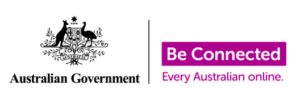Australia most close the digital divide if we are to overcome the economic challenges that have arisen from the Coronavirus pandemic.
That’s the message from the Good Things Foundation, which states: “COVID-19 has changed the way the world works, and it has highlighted the essential need for digital inclusion like never before.” Other organisations, such as the Centre for Social Impact, agree.
The impact on disadvantaged Australian students is profound: “About 87% of Australians can access the internet at home. But only 68% of Australian children aged 5 to 14 living in disadvantaged communities have internet access at home, compared to 91% of students living in advantaged communities,” write Amy Graham and Pasi Sahlberg.
The impacts go well beyond learning: “The digital divide is evident not just in education. Internet access is a prerequisite to participating in the digital economy. It’s also essential for completing many of the tasks modern life requires. For years, we have seen the gradual shift of everyday services like welfare and banking to the internet. In a matter of weeks, we’ve seen the Coronavirus pandemic effectively shut the door to the offline world,” says Nicola Heath.
The Good Things Foundation has created an image (pictured) “of an Australian landscape, divided down the middle by a river. On the left-hand side are the ‘offline nation’ statistics. On the right-hand side are the statistics for the ‘online nation’. Crossing the river are the factors that help people to bridge the digital divide. In the sky of the landscape are the approaches required to move to a digitally included country.”
Australians most likely to be excluded from the digital world are Indigenous, people with a disability, with less than year 12 education, unemployed, over age 50, lower income, with mobile-only internet connections, and regional and rural.
“It’s no coincidence that these are the very groups that Australia’s not-for-profit adult and community education providers specialise in reaching. Our sector does ‘the heavy lifting’ in engaging these marginalised groups in post-secondary education and training,” said Dr Don Perlgut, CEO of Community Colleges Australia.
“It’s more important than ever that Australia’s community education providers be supported to assist Australia’s most challenged population groups,” said Dr Perlgut.
The Good Things Foundation coordinates the Be Connected Network, funded by the Australian Government, which provides grants up to $15,000 for digital skill-building and inclusion.






